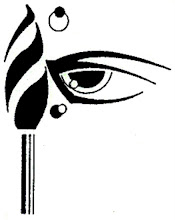The Overton 3619 South State Street -
INSTALLATIONS BEGINS October 29, 30, 31 -
OPENS NOVEMBER 1, 2018 4- 8pm
ART AND SOCIAL JUSTICE:
Renee Baker, "Cabaret of Racist Purchased Identity: Banking on History in Lightning"
Felicia Grant Preston, "Shogun" "Shotgun" means "God's House." Duane Preston, Renard Preston, and Jihad El Amin
Paola Aguirre Serrano, "Creative Grounds & The Future of Social Infrastructure"
Paula Robinson, "Black Men Missing: Missing Black Men"
Michael "Koto" Thomas, Walter Freeman, Larissa Johnson, Rhonda Hardy, Toussaint Werner,
Michael "Koto" Thomas, Walter Freeman, Larissa Johnson, Rhonda Hardy, Toussaint Werner,
The specific question I want to press is what are some ways we as artists examine the state of our environment, and what is the intersection of art and social justice, as seen in the practice of each artist?
We engage in a discussion not only about race and gender but about societal attitudes about race and gender, using racism as a consumer commodity. So why does racism still count as one of the world's largest commodities?
Through "Art Talks," the Phantom Gallery Chicago explores issues of interest and concern to artists and the art community, including political, environmental, moral, social, global, or personal ones. Let Us Examine the State of Our Environment is a featured program as part of the Phantom Gallery Chicago "Creative Conversation." Join us as we examine each curator's point of view and the issues they address in their installation.
Renee Baker, "Cabaret of Racist Purchased Identity: Banking on History in Lightning"
Using racism as a consumer commodity, Birth of A Nation (1915) spurred the resurgence of NAACP membership, the KKK, and Hollywood drastically and had a stunning impact on real-world history. From newly found justification to harassment to the openly positive endorsement of then-president Woodrow Wilson, the revival of the KKK, lightning struck with the release of Birth of A Nation in 1915. In 2018, have we debunked the lower form of life" myth propagated in film history for blacks? Does society still hold racist states of mind, all the while giving a "thumbs up to continued violence and devaluation of people of color? Why does racism still count as one of the world's largest commodities?
Felicia Grant Preston:
"Shotguns," is considered by some critics to be a black "American Gothic," with its strong themes about the role of women as the center of cultural continuity, and the houses as the center of living.
 |
| Duane Preston |
"Shogun" means "God's House." "Shotguns,"
In Chicago, the shotgun is a corruption of the word. Felicia Grant Preston, Duane Preston, Renard Preston, Ciera L Preston, and Jihad El Amin will focus on issues each feels strongly about. This installation will include a clothesline and other visual and auditory effects. Research indicates that this architectural style came to New Orleans from West Africa via Haiti. In Haiti, enslaved Africans took the architectural form common to their homeland and, using local materials, built narrow buildings with gabled entrances, stucco walls, thatched roofs, and shuttered windows to enjoy the only privacy allowed to them. They also wrote African motifs into the exterior framing of their homes.
A "shotgun house" is a narrow rectangular domestic residence, usually no more than 12 feet wide, with rooms arranged behind each other and doors at each end of the house. It was the most popular house style in the Southern United States from the end of the American Civil War through the 1920s." Creative Grounds & The Future of Social Infrastructure"
In Chicago, the shotgun is a corruption of the word. Felicia Grant Preston, Duane Preston, Renard Preston, Ciera L Preston, and Jihad El Amin will focus on issues each feels strongly about. This installation will include a clothesline and other visual and auditory effects. Research indicates that this architectural style came to New Orleans from West Africa via Haiti. In Haiti, enslaved Africans took the architectural form common to their homeland and, using local materials, built narrow buildings with gabled entrances, stucco walls, thatched roofs, and shuttered windows to enjoy the only privacy allowed to them. They also wrote African motifs into the exterior framing of their homes.
A "shotgun house" is a narrow rectangular domestic residence, usually no more than 12 feet wide, with rooms arranged behind each other and doors at each end of the house. It was the most popular house style in the Southern United States from the end of the American Civil War through the 1920s." Creative Grounds & The Future of Social Infrastructure"
Paola Aguirre Serrano "Creative Grounds & The Future of Social Infrastructure"
Statement:
Our democracy lives and breathes in our social spaces. Creative Grounds is an installation that invites us to think spatially and geographically, utilizing maps and places as visuals to reflect on the cityscape and quality of our social infrastructure – parks, schools, community centers, and libraries. And more as tools for visualization of distribution and concentration, this installation contrasts and compares the location of closed public schools in Chicago from 2013 – the most significant school closings in the history of the United States – to raise questions about investment and disinvestment, social equity, and justice.
PAULA ROBINSON
Black Men Missing: Missing Black Men
Our Team:
Toussaint Werner: Artist
Paula Robinson: Project Manager
Michael "Koto" Thomas: Program, Manager, Activation
Walter Freeman: Design, Production & Installation
Larissa Johnson: Program Engagement
Rhonda Hardy: Program Administration
This project is partially sponsored by the Phantom Gallery Chicago Network, FG Commerical Realtor Lauren Lowery, The Davis Group, Bronzeville Art District, and the Chicago Modern Orchestra Project.
Sponsorship & Supporters (Invited)
Woods Foundation, Illinois Tech Community Affairs Department, PNC Bank/Bronzeville
Alderman Pat Dowell, Rehab Construction Systems Inc, Leroy Kennedy







.jpg)







